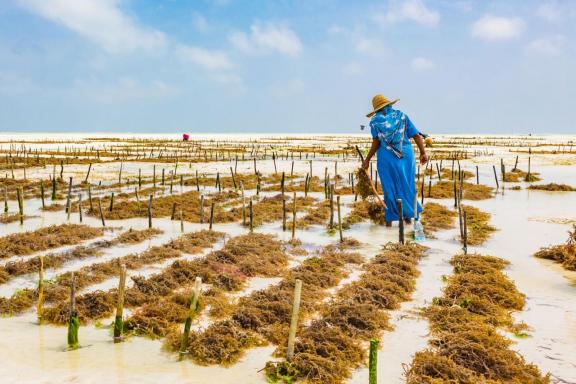The IRM’s Efforts to Make Its Gender Actions Speak Louder Than Its Gender Strategies
In our last blog about the Independent Redress Mechanism (IRM)’s gender journey, we introduced a fictional character Bo, a woman who was facing adverse impacts from a project funded by an international financial institution (IFI). Bo could not easily and freely file a complaint with the IFI’s grievance redress mechanism. To make sure that people like Bo and those from other marginalised gender groups can easily access the IRM, we discussed the importance of preparing strategies to ensure all genders have equal access to the IRM. However, how useful is a strategy without an action? After producing its latest set of strategies, the IRM has started taking real actions to enhance its gender responsiveness. Read below to see what it’s doing:
Since the IRM first announced its commitment to gender responsiveness through the development of a gender strategy note, the IRM has held many internal discussions, taken training on gender, and consulted external experts and civil society organisations to improve its strategies. While the IRM’s gender strategy note is a living document that the IRM will continue to update based on its knowledge and experiences gained, it has become a good basis for the IRM to take step-by-step measures to ensure that its stakeholders have equal access to the IRM.
The last section of the IRM’s Gender Strategy Note includes a table of specific actions that the IRM has committed to implementing. Based on this, the IRM has already taken steps to begin implementation. For example, the IRM is in discussion with its Case Management System provider about adding a question about gender on its online complaints form. The IRM has also started incorporating the same question in its registration forms and surveys for events such as capacity building and outreach webinars. This will allow the IRM to collect data about the genders of its stakeholders and ultimately enable the IRM to come up with more concrete measures to ensure all genders’ equal access to the IRM.

Many of its strategies include training to enhance the IRM’s knowledge base on gender. In September 2021, the IRM staff, with other members of the Independent Accountability Mechanisms Network (IAMnet), will be trained on how to effectively handle complaints relating to sexual exploitation, sexual abuse and sexual harassment in projects and programmes financed by multilateral development banks. The IRM will also find ways to train its panels of subject experts, mediators and interpreters. This is because they engage with the IRM’s stakeholders while delivering their services to the IRM, and it is extremely important that they act in accordance with the IRM’s gender strategies. Thus, the IRM has found it opportune to add gender experts to its panel to help the IRM with such training and to ensure expert advice is readily available when needed during the IRM’s operations. In fact, through its social media channels, the IRM has attempted to urge gender experts to apply for the IRM’s panel consultancy. [1]
The IRM’s daily mission involves raising its stakeholders’ accessibility to the IRM. The IRM will proactively consider the gender impacts of all its work, in addition to fulfilling the strategies specified in its gender strategy note. For those who advised the IRM and commented on its draft gender strategy notes - thank you very much for accompanying us on our gender journey and watch us act on it!
[1] If you are a gender expert and intested in applying for the IRM’s subject expert roster, you can find the TOR at: https://www.greenclimate.fund/sites/default/files/vacancies/consultancy/roster-subject-experts-irm-2020-01-15.pdf